- Home
- Patrick Robinson
Nimitz Class am-1 Page 17
Nimitz Class am-1 Read online
Page 17
Bill Baldridge let out a yell, cracked the whip high over his head, and drove Freddie into the steer’s right flank, and turned the brute away, back to his pals in the bunch. Bill grinned at the look of stark relief on its bovine white face.
He rode in to the group, guarding the right-hand escape route. “Hey, thanks, Bill,” said the older of the two men, another tall cowboy, with a big tobacco bulge in his left, nut-brown cheek. “Ain’t lost your touch any, have you?”
The two men had not spoken for a couple of years, but there are some places where time stands, more or less, still.
Bill grinned. “No problem, Skip. These hot days they can get real determined to stay near the water.”
“Sure can. Staying long?”
“Uh-uh. Leaving Sunday.”
“Miss havin’ you around. We was thinking you might come back now…Jack and everything.”
“Next year I’ll be back. For good.”
They rode in silence for a little way, before Skip McGaughey spoke again. “Know what I hate most about the Navy, Bill?”
“Lay it on me.”
“I hate the way there are no gravestones for most men who die in big warships. You know, my grandfather was killed in the Pacific in World War II. Never found him. And my grandma always said how she wished there was just somewhere she coulda seen his name.”
“Yeah. ’Course in the Jefferson there were no bodies, not even any wreckage. Nuclear blasts don’t leave much behind.”
“At least it was instant.”
“No doubt about that.”
“We gonna have a memorial stone for Jack?”
“Guess so. Hadn’t really thought about it much. Mom’s kinda upset right now.”
“Hell yeah. Still, I think there should be something. You know, ever since yer dad passed away, we’ve always called Jack, ‘the Boss’, even though we didn’t see that much of him.”
“Yeah. I know you all called him that. I called him that myself. You already know, I guess, he was serving as the Group Operations Officer on the carrier, the admiral’s right-hand man. They were gonna make him a rear admiral for sure.”
“Guess then we’d never have seen him.”
“Not for a few years anyway.”
“That’s even more reason to have a memorial, eh?”
“What kind of thing? It’d have to be pretty low-key. Jack hated anything showy.”
“Well, some of the boys were thinking. You know how Jack used to go fishing down by those rocks on the creek. ’Bout four hundred yards from the main house. One of them rocks is pretty big, twelve feet tall, pure granite, like that strata over in the Flint Hills. How ’bout a memorial tablet in bronze set right in that rock, by a stone-mason. Something kinda quiet, and impressive…like him.”
Bill pondered for a moment, thinking again of Jack, of the great U.S. warship, of the black Russian Kilo he knew had sunk the Americans. Then he spoke. “Skip, I love it. Jack had fished down there all his life. He would a liked that. Really liked that. Right next to the water. Tell you what. I’ll draft the words, Ray’ll get a photograph, and we’ll have a bronze relief done of him in uniform. Head and shoulders. ’Bout a foot high, above the plaque. Lemme leave the casting and the mason up to you and Ray, can I? Then we’ll get it fixed up, and have a little service out here in the spring. Surprise Mom…get a few of the Navy High Command out. That little glade will be full of sailors and cowboys. When the priest blesses the stone, I guess Jack’s spirit will have come home, from half a world away…at least it will to all of us.”
“Beautiful, Bill. That’s gonna be real nice. And we’ll all be close to the boss every time those goddamned steers stray down by the river.”
“Hey, I’m glad we met up. That gate open at the pens?”
“Yup. I got young Razor right there, ready to close it soon as they go in.”
The three cowboys tightened their grip on the six strays, each man now with a drawn stockwhip. The horses squeezed in tight, edging up to the gateway. Then Skip broke loose, wheeled around, and came in behind fast, with a loud yell and a crack of the whip. The steers never even looked back, just bolted for the safety of the corral. Razor banged the gate shut behind them. “G’job, Skip,” drawled Bill Baldridge.
“Jest about gittin’ the hang of it now.”
And then Bill rode over toward the stables, calling back, “G’bye, boys — till next time, eh?”
“Yes, so long, Bill — don’t let ’em get you down.”
Then, somewhat mischievously, the young master of the big ranch called back, “Water trough’s a little empty.”
“Goddamit, I bin filling it for thirty-five years, I don’t guess any of ’em gonna die of thirst tonight.”
“Guess not. Just wanted to keep you sharp,” shouted Bill, laughing.
“Git owta here, willya?” chuckled the veteran cowboy.
Bill waved back, steered Freddie into the stables, where the fleet-footed Razor was now ready to hose him down, feed and water him. “Thanks, buddy,” said Bill, pressing a twenty-dollar bill into his hand. “Look after him while I’m gone.”
In the next-door stall he could see Jack’s old cow pony, Flint. To Bill he looked a bit forlorn, like everyone else around here. The sadness was everywhere, and Bill walked out into the bright sunset still thinking of Jack, and of the shocking unreasonableness of his death.
Before he showered and changed for dinner with his mother and Ray’s family, he sat briefly at his old schoolboy desk and wrote on an old legal pad the following words:
CAPTAIN JACK ETHAN BALDRIDGE
(1962–2002)
Beloved son of the late Tom Baldridge
and Emily Henderson Baldridge.
Lost at sea in the USS Thomas Jefferson
disaster, July 8. Captain Baldridge,
the Battle Group Operations Officer
on board the aircraft carrier, perished
in the Arabian Gulf along with all 6,021
men of the ship’s company. A fine cattleman,
a brilliant Navy officer, and a great Kansan.
Never Forgotten. By All at the B/B.
Dinner with his family was too sad for levity, and the discussion involved mainly the future of the fifty-thousand-acre Baldridge ranch. Emily Baldridge told Bill that when he returned he would move into the big house as the master of the operation. Ray and his wife and family preferred to remain in the more beautiful, but smaller, six-bedroom River House, a quarter of a mile away, beyond the horse paddocks.
Should Bill return with a wife, Emily would take up residence in the “Boot”—the three-bedroom ranch house across the front lawn, built by Bill’s grandfather, and never fully occupied since he died. The Boot, named because of its shape, was normal in every respect except that it had one huge room with a beamed cathedral ceiling hung with Indian regalia, including a painted kayak suspended from the rafters.
On every wall there were mounted moose heads, bison, even a wildcat. Indian blankets were thrown on the big handmade sofas. Three mighty bearskin rugs covered the polished wooden floor. The yawning stone fireplace made it probably the best room on the property for a winter evening.
Bill always thought it a pity they never used the Boot except for parties. He also thought that if his mother ever moved in, the bison and the wildcat had about ten minutes before she replaced them with paintings of what she would call “a more agreeable ambiance.” Emily herself was already planning a beautiful new house, to be constructed further along the river, for Jack’s widow, Margaret, and the two girls.
Like most Navy wives, Mrs. Jack Baldridge was accustomed to living on either the East Coast or the West Coast. But within hours of the news from the Arabian Gulf, Margaret had expressed a firm wish to bring her family deep into the rural heart of the United States. Deep into the rural heart of the Baldridge family, the closest place in all of the world to the memory of her lost husband.
Emily had been magnificent. She had dispatched two ranch hands and a l
awyer to San Diego to supervise an immediate move east for Jack’s family. She had tried to point out that the quiet, secure pace of life out in Burdett might not be quite what Margaret imagined. But Margaret had been insistent that she intended to make a new life here.
Now Emily was preparing to welcome them all, with arms open as wide as the prairie, right into the bosom of the Baldridge cattle empire. They represented a new generation, and they were arriving to perpetuate what was already there. Emily could not resist a feeling of joy beyond her own tears. She adored Margaret, and her granddaughters, and had often been saddened by the fact that they would be too grown up by the time their father was ready to return to the ranch.
Jack’s death had cost them a natural-born leader, and a loving father, but in the eyes of Emily Baldridge, it had also made her family more complete. Tom would have loved that, all of the young Baldridges together at the B/B.
The following days passed quickly, and Bill spent much of them closeted with the family lawyers in Dodge City straightening out the trust in the aftermath of Jack’s death. He toured the ranch a few times with Ray and left written instructions for the accountants to try and buy five hundred acres more down near the creek, further west. There was some unproductive land to the north Ray wanted to sell, but the trust decreed no land could be sold without being replaced. The Baldridge acreage had thus never been reduced in three generations.
On Sunday morning, July 14, rested and dressed again in his newly pressed Naval uniform, Bill headed out to the Cherokee where Ray was waiting. Just as he opened the door, his mother hurried down the veranda steps. “Billy,” she called. “Before you go, just one thing…try to remember…to take care of yourself,” she said, reaching to embrace him.
“Don’t worry,” he reassured her.
Bill had told her nothing of where he was now going, but she was aware of his uneasiness. She sensed something sinister would accompany her last Naval officer, on his last mission, and Emily Baldridge watched in silence as the Cherokee drove out to the prairie in a cloud of dust.
6
1730 Sunday, July 14.
Lieutenant commander Baldridge arrived at Boston’s Logan Airport late Sunday afternoon. Outside, the temperature was still 92 degrees under clear skies. He picked up his suitcase, headed for the American Airlines counter, and handed over his economy-class ticket and passport. A slim dark brunette from Customer Service approached him. “Mr. Baldridge?” she inquired.
“That’s me.”
“Come this way, and I’ll take you down to the Admiral’s Club. I’ll bring your ticket and passport.”
Baldridge shrugged and walked down the wide corridor, through the security check, and crossed the concourse to the big oak door guarding the first-class lounge. His escort pushed the door open, gave a cursory nod to the attendant, and led him to a private corner table marked “Reserved.” A telephone was positioned next to his deep armchair, and someone was asking him whether he preferred a drink, or perhaps coffee.
“Coffee, please,” he said. “Black, two sugars. Thanks, ma’am.” Someone in high authority had cleared his path, he had no doubt of that.
No one at American Airlines, nor indeed at the Royal Navy’s headquarters, had the remotest idea of the young American officer’s mission.
When the flight was called, Bill was escorted to a first-class seat. There was no one in the seat next to him. He had a couple of large glasses of fresh orange juice, an early dinner of steak fillet and fruit salad, and slept for the rest of the night. The six-hour journey passed quickly, and the flight attendant awakened him with a pot of fresh coffee. He drank it, disappeared for a shave, and stepped down the jetway into London’s Heath row Airport at 7 A.M. refreshed but in a somber mood.
He was escorted through passport control, his bag was brought to him in the customs hall, and he walked straight out through the “Green, nothing-to-declare, lane,” into the safe custody of a Royal Navy staff driver and a female officer.
He sank quietly into the backseat, and left it to the driver to fight his way through the rush-hour traffic out onto the M4, and from there onto a circuitous route through the western suburbs to the tree-lined, unprepossessing military base in Northwood, some fifteen miles from central London. From a bunker beneath these bland modern buildings, Margaret Thatcher conducted the Falklands War in the company of her generals, admirals, and air marshals. Only the forest of radio and satellite communications which protruded from a half-dozen roofs betrayed this place as a secret citadel of Great Britain’s military defenses.
They passed through the guards at the gate, drove on down the hill, and stopped outside the main building. “I understand you will be here for most of the day, sir,” the driver ventured. “Leave your bag. I’ll be waiting.”
Bill was escorted up the steps, through the glass doors, and up two additional flights to the offices of Admiral Sir Peter Elliott, the Royal Navy’s Flag Officer Submarines. He was greeted by the Flag Lieutenant, Andrew Waites, who shook hands and hustled him next door to meet the admiral’s Chief of Staff, Captain Dick Greenwood. The place left an impression of battleship gray, steel desks, slightly tired carpets, cluttered tabletops.
It was the people who set it apart, as indeed they set apart the Navy offices in the Pentagon. Here in England each man was dressed in his “number twos,” dark blue trousers, white shirts and black ties, navy sweaters with high round necks and lapels. A small insignia on the shoulders indicated rank. All the faces, the manners, the attitudes were those of highly trained, confident, fit men.
The Royal Navy appeared to Bill to have misplaced a submarine of their own, judging by the conversation — a couple of “Oh shits,” three “Jesus Christs,” and a loud “Well, send him another fucking message.” Baldridge grinned. It was the same in every top submarine service. The sheer difficulty of communication with an underwater warship, which couldn’t hear a goddamned thing most of the time, was the most frustrating aspect of the job.
The COS was brisk and to the point. “I don’t see any reason to hang around. Tell me how you like your coffee and we’ll pop straight in and see the boss.”
The Royal Navy’s Flag Officer Submarines (FOSM), Admiral Elliott, stood up behind his desk and shook hands with the American. He was not as tall as Bill, but he was slim and stood very erect — unmistakably a military man. The eyes were piercing blue, the dark hair graying at the temples, the skin still tanned. The expression wide open, but wary. A man who has spent a lot of years at sea, Bill thought. What he did not know was that Admiral Sir Peter Elliott had been an outstanding submarine captain, commanding a Polaris in the 1970s, and a nuclear hunter-killer in the Falklands. He had also been the Teacher at Faslane. So indeed had Captain Greenwood, another nuclear boat commander.
The three men sat down and chatted briefly about the hot summer, both in England and the United States, and then the Royal Navy’s submarine Flag Officer asked Bill Baldridge precisely what he wanted.
“I have been given no briefing from the Admiralty, save a message to suggest I cooperate with you within my discretion. It may also be within my discretion to report our conversation to the Ministry of Defense, and I think you should understand that before we proceed.”
“I understand perfectly, sir. However, I have been asked by the CNO to make all of my inquiries here as discreet as possible.”
With the playing field now clear of minor obstacles, and the slow Kansan drawl of the American settling easily on his ears, the British admiral smiled and said quietly, in an impeccable English accent, “Well, Mr. Baldridge, how can I help you?”
“Sir, I would like to request your permission to review your files of foreign officers who passed through the Commanding Officers Qualifying Course at Faslane during the period from 1982 to 1992.”
Admiral Elliott shot a glance at Captain Greenwood, who imperceptibly shook his head — a shake of such infinitesimal motion, Bill was glad he caught it.
“Impossible for several reasons, I am a
fraid, the most obvious being that the material is highly classified.”
“Hmmm. Can I get around that?”
“Well, perhaps if you were to tell me what you’re looking for, that might be a start.”
“I don’t think so, sir.” And then, “I am not really empowered to do so,” he lied.
“You must understand one thing. Even if I gained the necessary permission to show you the documents, I would have to clear each one with the respective embassy of the officer concerned. Before I showed you one word.”
Bill now knew he was in a serious game of poker. “Well, sir, I would remind you that I am here on the highest possible authority.”
“I do not really have proof of that. I would most certainly require you to verify it. How far up can you go — I mean to a U.S. official we can contact right now.”
“Quite high, sir. The Chief of Naval Operations at the Pentagon, if necessary. If that won’t do, the Secretary of Defense. Failing that, the President of the United States. Even at this early hour of the morning.”
“Yes,” replied the admiral, slowly. “You really do want to see those records, don’t you?”
“Yessir. Yes I do.”
“Okay, Bill. I am going to ask you formally, now, and I want you to answer me, otherwise I shall have no alternative but to refer your inquiries to Whitehall, which has a way of holding things up for several weeks…sometimes years!”
“Sir, if I have to, I’ll have the President call the Prime Minister….”
“I know you can, and I know you will. But all of that may not be necessary. Answer me. Tell me why you want to see my records.”
“Because I’m looking for someone, sir.”
“Yes, I have worked that out. Who are you looking for…?”
“I can’t say, sir…well, not really.”
The admiral stood up, smiled down at Bill, walked over to a table, and poured three cups of coffee, two sugars for Bill. “Very well,” he said. “Let me ask you a question. And I require you to answer it honestly.”

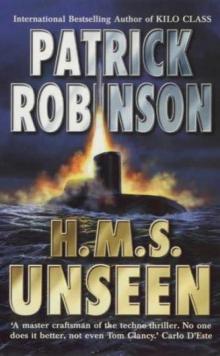 H.M.S. Unseen am-3
H.M.S. Unseen am-3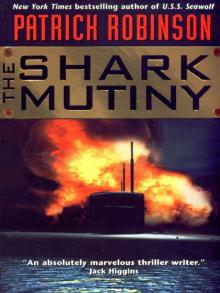 The Shark Mutiny (2001)
The Shark Mutiny (2001)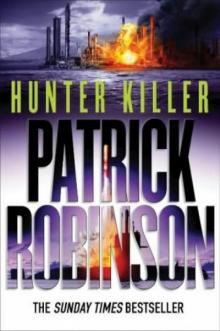 Hunter Killer am-8
Hunter Killer am-8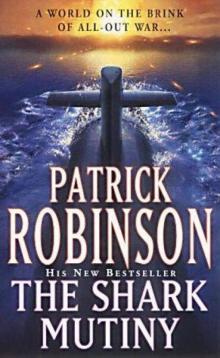 The Shark Mutiny am-5
The Shark Mutiny am-5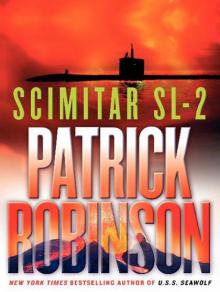 Scimitar SL-2
Scimitar SL-2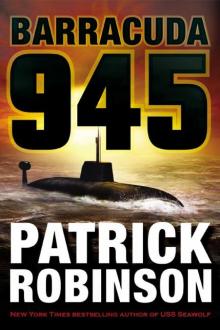 Barracuda 945 am-6
Barracuda 945 am-6 Hunter Killer
Hunter Killer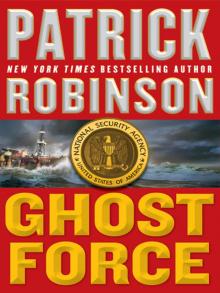 Ghost Force
Ghost Force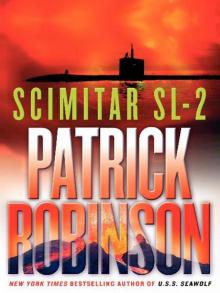 Scimitar SL-2 (2004)
Scimitar SL-2 (2004)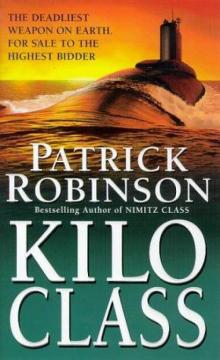 Kilo Class am-2
Kilo Class am-2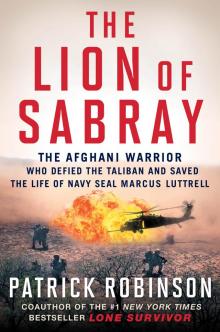 The Lion of Sabray
The Lion of Sabray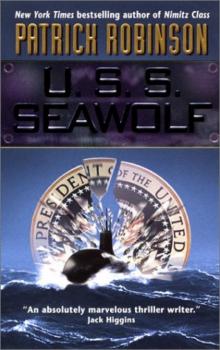 U.S.S. Seawolf am-4
U.S.S. Seawolf am-4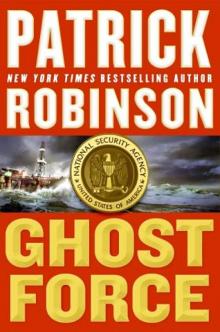 Ghost Force am-9
Ghost Force am-9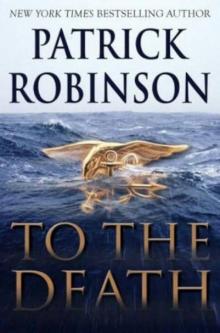 To the Death am-10
To the Death am-10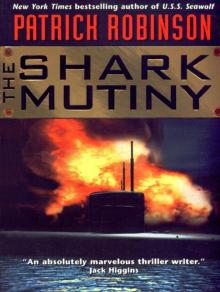 The Shark Mutiny
The Shark Mutiny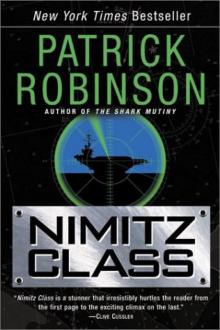 Nimitz Class am-1
Nimitz Class am-1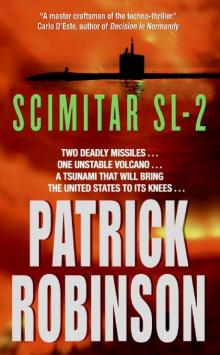 Scimitar SL-2 am-7
Scimitar SL-2 am-7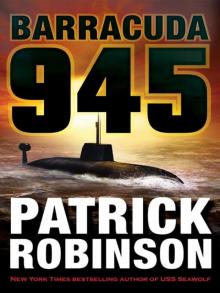 Barracuda 945
Barracuda 945 Intercept
Intercept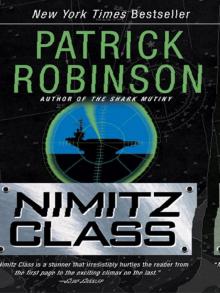 Nimitz Class (1997)
Nimitz Class (1997)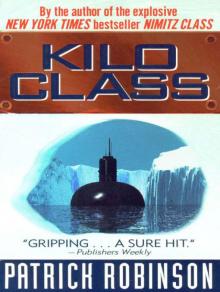 Kilo Class
Kilo Class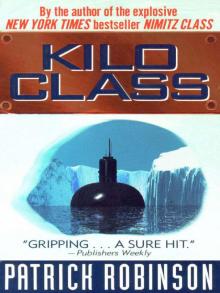 Kilo Class (1998)
Kilo Class (1998) Diamondhead
Diamondhead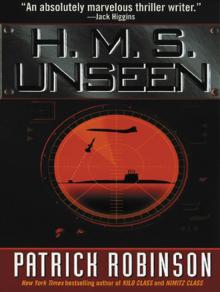 H.M.S. Unseen
H.M.S. Unseen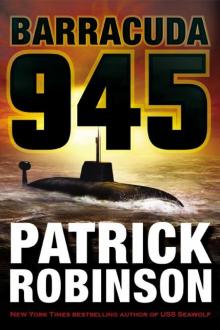 Barracuda 945 (2003)
Barracuda 945 (2003)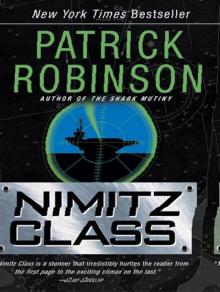 Nimitz Class
Nimitz Class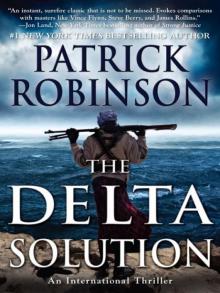 The Delta Solution
The Delta Solution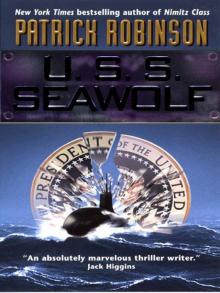 U.S.S. Seawolf
U.S.S. Seawolf